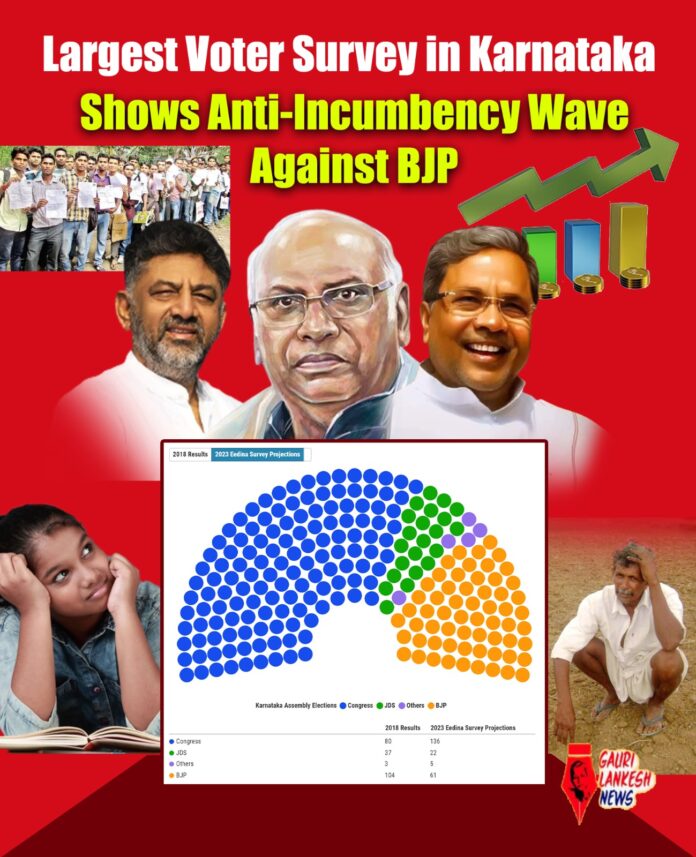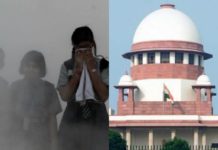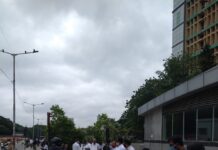According to a recent survey conducted by Eedina.com, there is an anti-incumbency wave against the Basavaraj Bommai’s led BJP government in Karnataka. The survey, which is said to be the biggest in the history of Karnataka elections, was conducted in all assembly constituencies across the state, covering 183 constituencies so far, with work still continuing in some more, including 28 constituencies in Bengaluru. It saw participation from people belonging to different sections, communities, and areas.
Details of Survey
The survey was conducted from March 23rd till date, with 39,181 interviews conducted so far. 16 booths were selected in each constituency and 25 people from each of the booths were interviewed, with random sampling employed in both cases. The door-to-door survey was conducted in-person with a Kannada questionnaire.
Its methodology aimed to have representation from all communities of the society, with the final survey achieving a sample in which the percentage of people belonging to a particular community was very close to their actual representation in the population of Karnataka. The proportion of respondents from urban and rural areas was proportional to their percentage in the population of the state. 55% of the respondents were male and 45% were female. The survey covered various communities, with opinions of 17% scheduled castes, 8% scheduled tribes, 11% Muslims, 17% Lingayats, 11% Okkaligas, and 10% Kuruba community.
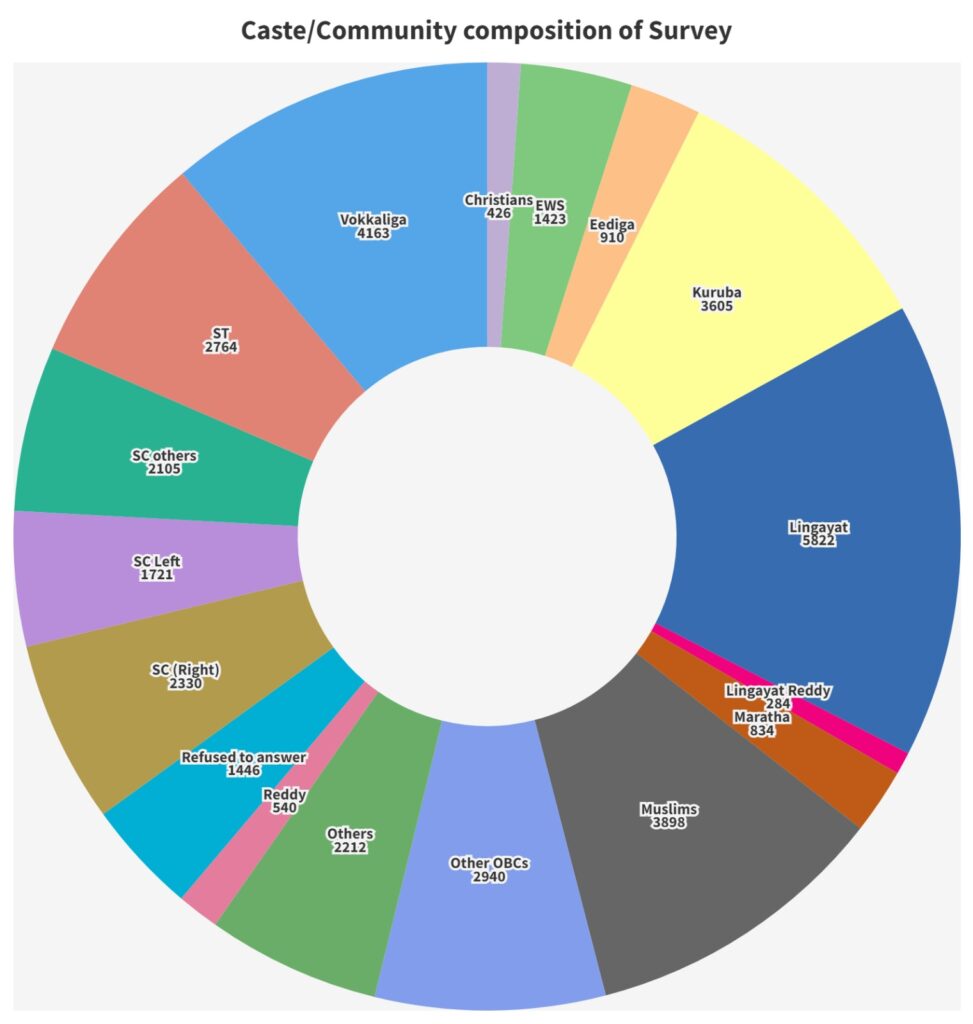
Anti-Incumbency Wave
The question asked in the survey was whether the current government should be given another chance to govern. The results showed that two-thirds of the voters want the BJP government to go, and a quarter (27%) of BJP supporters are not happy with the current government. The survey also found that most Congress and JDS supporters have spoken against the government, with 87% of Congress supporters and 88% of JDS supporters expressing that the government should not be given another chance to govern.


Interestingly, 57% of respondents belonging to upper castes such as Brahmins and Vaisyas favored the current government, while Lingayats were found to be more or less equally divided on both sides of the issue. Additionally, Scheduled Castes, Scheduled Tribes, Muslims, Okkaligas and Kurubas have largely expressed their opinion against the continuation of this government. Within this group, Muslims (86%) and Okkaligas (78%) are the most opposed to the continuation of the current government.
The survey also found that anti-incumbency sentiment against MLAs from the ruling BJP is higher compared to their Congress or JDS counterparts. Only 33% of respondents were willing to give their sitting MLA another chance, while a little less than that were against it. Another one-third were indifferent. However, when broken down by political party, anti-incumbency sentiment against the BJP MLAs was much higher, with only 42% of voters in the 87 seats with sitting BJP MLAs wanting to give them another chance, and 58% not wanting to give them another chance. In the 44 seats with Congress sitting MLA the proportion was reversed: 58% wanted to give the MLA another chance, while 42% were against it. The constituencies with sitting MLA from JDS has a mixed record with equal proportion of pro and anti-incumbency.
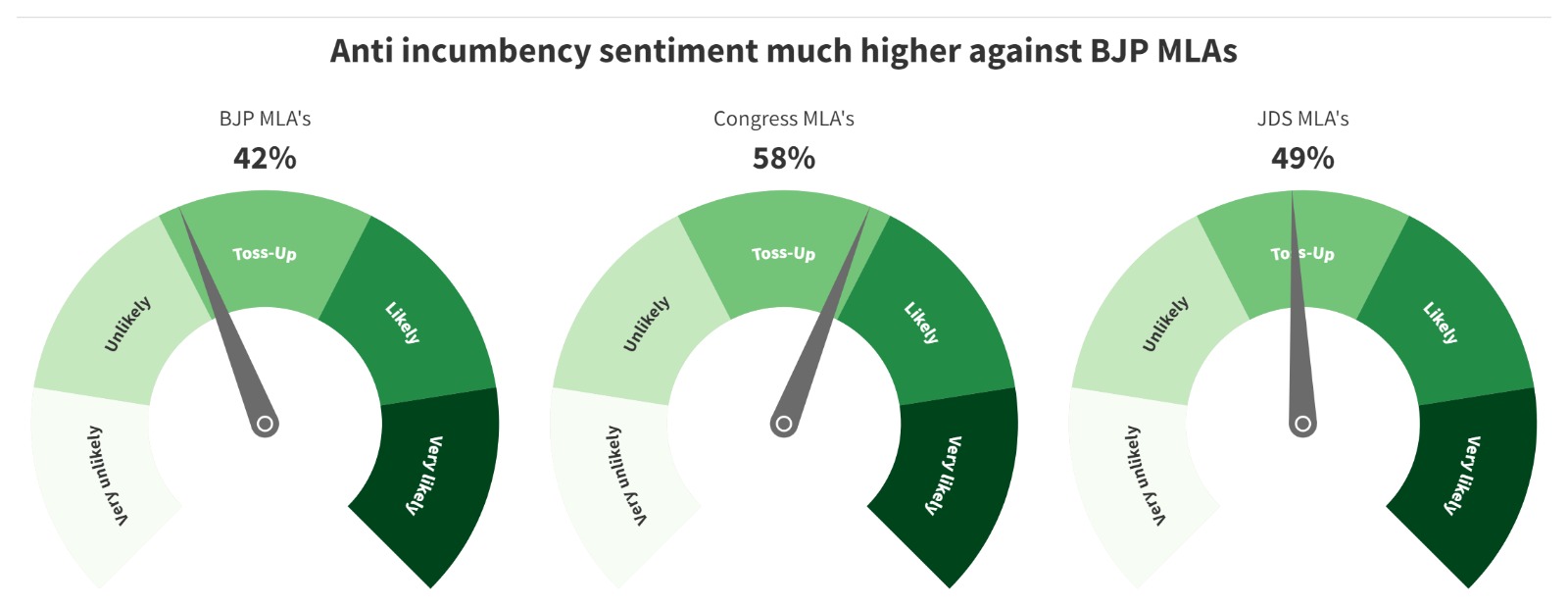
Role of Operation Kamala
Eedina.com also included questions that looked at the impact of Operation Kamala, an infamous political move in which winning Congress MLAs switched over to the BJP. While voters in the state disapproved of the operation by a two-to-one ratio, voters in the constituencies affected by the operation remained ambivalent. A total of 42% of respondents disapproved of the operation, twice as many as those who approved, and more than one-third did not have an opinion. In the affected constituencies, the disapproval was milder, with 22% disapproving against Operation Kamala and 15% approving.
Opinion on the issue followed partisan lines, with BJP supporters being more likely to approve of Operation Kamala. Illiterate voters were more unequivocal in their condemnation than the highly educated. Most importantly, 63% of respondents chose to remain silent on the ethics of defection in their own seat, compared to 37% in the state.
It should be noted that public opinion and voting behavior can differ, and even though people may feel that the government is not right, they might end up voting for the same party. It remains to be seen how this will affect the upcoming elections in Karnataka.
The full survey results can be found on the Eedina.com website.
Read also: SC Directs Karnataka Government To Uphold Muslim Quota Till May 9

















